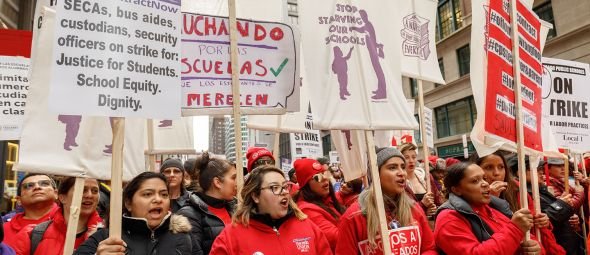Overview
Unions, collective bargaining, and other forms of advocacy have resulted in better wages, benefits, and working conditions for workers. Organized labor, however, is at a crossroads, as union membership has declined. As unions evolve to meet the needs of a globalized, 21st-century workforce, nonunion forms of worker organizing, sectoral bargaining, and worker representation on corporate boards have emerged as new forms of worker voice and representation.
Working Knowledge

People First, Employees Second: Workers Reflect on What Good Jobs Mean to Them

Supporting a Workforce That Makes All Other Work Possible: A Q&A with Palak Shah

A Call for Innovation in the Labor Movement: A Q&A with David Rolf
Research
Worker Voice, Representation, and Power
In this brief, we provide a summary of the research framework that informs WorkRise’s thinking about the importance of worker voice and power for low-wage workers’ labor market mobility. We then offer a series of specific priority areas for future…
WorkRise Research
A Workplace Divided: Survey Research and Stakeholder Engagement to Advance Equitable Workplaces
Grantee Research

Nailing New Labor Models: Exploring Sectoral Bargaining and High-Road Training Partnerships in the Nail Salon Sector
Grantee Research
Worker Power and Economic Mobility: A Landscape Report
WorkRise Research
U.S. Workers’ Organizing Efforts and Collective Actions: A Review of the Current Landscape
Grantee Research
